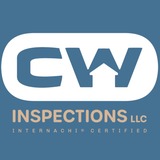Buying a condo? Don’t miss these 6 inspections that could reveal potential red flags
.
Heading out to today’s inspection of a condo in Baton Rouge, Louisiana had me thinking about a few concerns that the buyer brought up. Living about 1 mile from the campus of LSU poses some unique concerns about soundproofing.
A condo is, obviously, different from a single-family dwelling. But often there’s much more than condo association fees, shared walls, and elevators that separate an apartment from home — including what goes on before you ever reach the settlement table.
“Purchasing a condo versus a single-family home definitely creates some different items to address,” says real estate agent Ryan Willis of Boxwood Realty. One such item: an inspection.
Here’s what makes a condo inspection much different from any other home inspection — and why it’s important to be aware of the differences before signing on the dotted line.
1. Roof checks
Or, rather, make sure your inspector does. “Inspectors often only inspect the interior of a condo,” explains broker Keith Thompson of Berkshire Hathaway HomeServices Carolinas Realty in Charlotte, NC. “This is because the homeowners’ association is responsible for the exterior of the building.”
But don’t let the inspector skip a roof check. If they notice weather damage, for example, that may be on the homeowners’ association (HOA) to fix, and it can hike up assessments to cover the cost of repairs.
2. A radar for radon
This odorless, colorless gas could wreak havoc on your health, which is all the more reason to have a radon test before purchasing a condo.
“Some projects have concrete imported from other countries that emit radon gas,” explains Willis. “Because high-rises can be more ‘sealed,’ gas like radon is unable to escape, which can cause real health problems.”
Willis always suggests clients have a condo or apartment inspected for radon gas, especially newly built properties.
Historically, radon has not been an issue in South Louisiana.
3. Minutes, please
Back to that HOA: The meetings have minutes, which are available to all homeowners. Get your hands on those, suggests Heather Witt Leikin, a real estate agent with Partners Trust Real Estate Brokerage & Acquisitions in Los Angeles.
“The HOA minutes are your most important tool for understanding the workings and condition of the building,” she says. “Make sure you get a full 12 months of meeting minutes. You don’t want to buy in only to realize that there was a major building failure that might need a special assessment after you move in.”
4. Knock on wood
Or tile. Or drywall. Either way, inspecting walls, ceilings, and floors is most important when it comes to condo inspections since these areas are often shared with neighbors or common spaces in a building.
“Do pay attention to flooring and soundproofing,” advises Bud Clark, a real estate agent with Willis Allen Real Estate in San Diego. “If the condo has hardwood flooring, have your home inspector ensure adequate soundproofing, as hardwood flooring is a known sound conductor, particularly from neighboring units above.”
Make sure to check for water damage as well. “I had one client looking at a condo where there was visible water damage on the ceiling,” says Lee Williams, a certified negotiation expert and real estate agent with Rutenberg, a real estate brokerage firm in New York City. “We had the superintendent give us access to the roof to show the inspector that the problem had been fixed and that there was no new water damage.”
Being about 1-mile from the campus of LSU, the sound is important but the soundproofing installed between the walls is not typically able to be accessed by the inspector.
5. Seek out the HVAC
The HVAC unit may not necessarily be located in each individual condo, which is all the more reason to have it inspected by a licensed HVAC inspector, says Ryan Willis.
“This seems like a no-brainer, but in condos sometimes the HVACs can be on the roof or require preapproval or access instructions from the HOA,” he says. “It is best to get this information upfront so the inspection isn’t delayed. The HVAC is typically the highest-priced item to repair.”
And if it goes out, a hefty assessment could be handed down to the building homeowners — including you.
6. Get a lift
Most buildings with more than two stories will have an elevator. And like a shared HVAC or roof, if it requires repairs, you and your neighbors just might be the ones to foot the bill.
“Get your inspector access to the engineering report for the building’s elevator or elevators,” suggests Williams. “The building could have been built 25 years ago and the elevator only has a 30-year life on it per the report, so you need to be aware that to replace that elevator could cost you in the end.”
Buying a condo? What special inspections would you suggest? Share your advice in the comments below!
